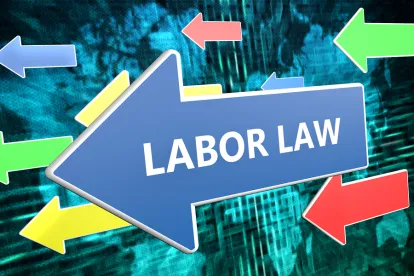On July 14, 2017, Brazil’s Labor Reform Bill (Law No. 13.467) (the “Bill”) was published after it was approved by President Michel Temer. The new law will go into effect on November 11, 2017.
The Labor Reform Bill will make extensive changes to several provisions of the Brazilian Labor Code. The Bill is significant because it represents the country’s first attempt to modernize and overhaul labor rules that date back to the 1940s.
Most significantly, the Bill offers more leeway to collective bargaining and provides that agreements negotiated between employers and workers on a range of issues override labor legislation unless such agreements extinguish basic labor rights foreseen in the Federal Constitution (such as, for example, minimum wage, prior notice and FGTS). A collective bargaining agreement will prevail even if there is no express consideration. In doing so, the Bill prioritizes direct negotiations between workers and employers over existing labor regulations, thereby reducing employer costs by allowing companies to negotiate contracts freely with employees.
In addition, the Labor Reform Bill provides for the following noteworthy changes:
-
Union’s Contribution: Union’s contribution, currently mandatory, will be voluntary and employees’ authorization will be required. Employers’ union contribution also will be voluntary.
-
Terminating the Employment Contract by Mutual Agreement: Employees may negotiate resignations with employers and, upon mutual agreement, the parties may terminate the employment contract. In such case, employees may be entitled to: a 50% payment in lieu of notice; a 20% fine on the existing balance in the FGTS account; and a withdrawal of 80% of the existing balance in the FGTS. Although employees will be entitled to other labor funds (e.g., Christmas bonus, vacation, etc.), they will not receive unemployment insurance.
-
Vacation Period: Vacation periods will receive more flexibility, as the vacation period may be split in three periods, one of which must be for a minimum period of 14 calendar days, and no vacation may be shorter than five calendar days. This provision applies to all employees, regardless of age.
-
Home Office: For the first time, working at a home office will be legally regulated, as employees may work from a home office if agreed to in a written employment agreement (even though employees in a home office may not receive overtime pay).
-
Part-Time Job: A part-time job may now comprise up to 30 hours per week (up from 25 hours per week) where overtime work is prohibited or up to 26 hours per week with the possibility to work six additional, pre-contracted, hours of overtime. Part-time workers are entitled to the same amount of vacation time as full-time employees and part-time workers may sell one-third of their vacation.
-
Free Negotiation of Employment Agreements: Employees with a university degree and salaries equal to or higher than two times the cap of the social security benefit may freely negotiate employment agreements directly with employers without union participation.
-
Ratification of Termination: Regardless of an employee’s time of service, the employee’s termination will no longer require union or Regional Office of the Ministry of Labor ratification.
-
Mass Termination: Union authorization will not be required to enter into a collective bargaining agreement to implement a mass termination program.
-
Voluntary Dismissal Plan: Unless otherwise specified by the parties, adhering to the Voluntary Dismissal Plan will provide a full and irrevocable release to the employment agreement.
-
Court Precedent: Courts, through precedent or other ordinance, will not have the power to restrict legally provided rights or create obligations that are not legally foreseen.
While supporters of the Bill argue that such labor reform will revive and bolster Brazil’s struggling economy, benefit job growth, increase flexibility in the job market and lower the risks associated with new hires, challengers (including unions) decry that the Bill’s changes will reduce job security and weaken organizing power.


 />i
/>i
